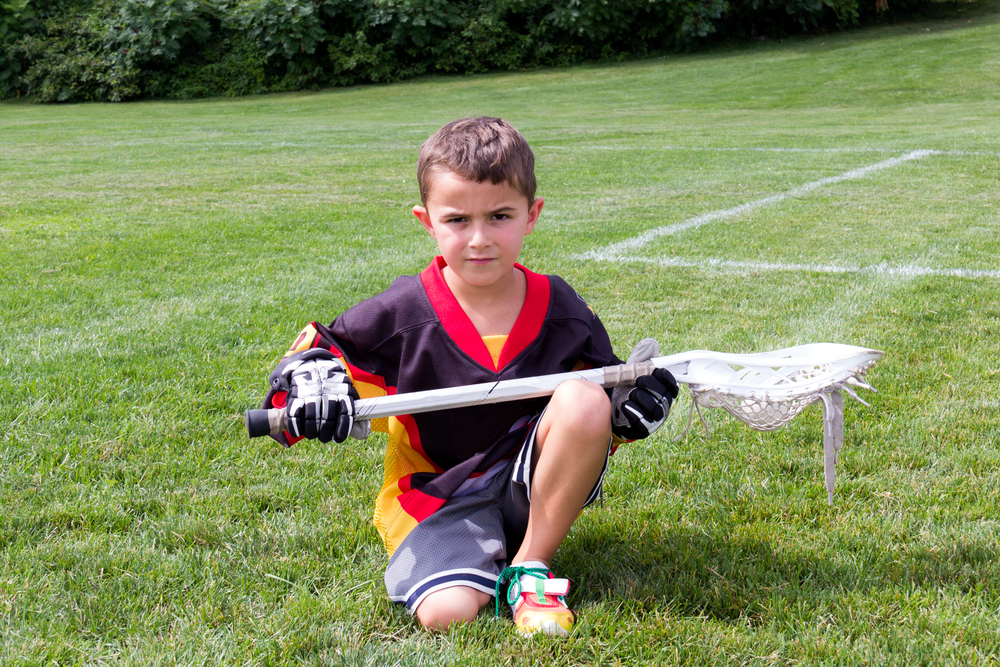The Role of Parents
By Karin Corbett, US Lacrosse 10/08/18
Student-athletes must take ownership of their development and game. By blaming outside influences, what does that teach your child?
I have been coaching for many years and the level of parental involvement has changed drastically. Today, coaches coach at the college level for the same reasons they have always coached: the love of the game, the chance to teach life lessons to young women as they mature, to bring together a group and create a unified team with a common goal, and to compete. All coaches have the hopes that every player they recruit will be able to see the field during competition, but just as top collegiate players in all sports can’t make it in the pro-level – the game moves faster, the athletes decisions need to be made quicker, the game is more physical and sometimes different skills sets are needed to succeed – many top high school players can’t make the jump to play in college.
All parents want their children to be successful and be happy. Parents have invested so much time, money, and energy into helping their children be successful in sports and it is never easy to see your child “not make it” at the next level. Student-athletes might not be seeing playing time their freshman year, or maybe not much of their college career. However, they are growing from girls into women and they need to be given the room to grow and own their own experience. Owning their own experience includes talking to their coaches if they are not happy with their playing time. I have coached some kids who are fine with their playing time, but their parents are not. Too often, parents consider it a reflection of themselves if their child is a superstar or if they are not seeing any playing time. What is a reflection of you as a parent, however, is how mature your child is, how hard your child works day in and day out, how responsible they are, how polite they are, how they make eyes contact when speaking to you, and how good a teammate they are.
As coaches we ask your kids to compete every day, work hard on their individual game, be coachable, responsible, and be a good teammate. We play the 12+ players who work together and will give us the best opportunity to win – it is as simple as that.
It is important for parents to let their daughters have this experience and to understand that the questions you ask about playing time are sometimes hard for them to answer. You should encourage them to discuss things with their coach if they are unhappy, but then listen to their answers. It is not easy for your daughter to tell you she isn’t as good as someone else, or not quite ready to play at this level, because she knows how much you have invested in her success. When she hears you boast about her being recruited by school X, and going to school Y, etc. – she understands that you have invested in her both financially and with your time, but also emotionally. When you question her about playing time and why she is not on the field, she becomes aware that she is disappointing you on a personal level. Many coaches have experienced parents who are willing to blame a coach for their daughter’s lack of playing time rather than the circumstances themselves and some student-athletes are inclined to let this happen, but this blame game moves them further away from taking ownership of their game and their development. Student-athletes must take ownership of their own development and game. By blaming outside influences, what does that teach your child?
As a parent your job is to love them – simple as that – whether they get on the field or not. With that in mind, a great question you might ask them is “what exactly is upsetting you?” And then, listen. “What are some things you think you can do to change that?” Ask them questions about how they like the team and their experience of playing lacrosse at their school. Remember they are now young women and they need to work their way through this. As a parent it is hard sometimes not to look at them as the child they once were and needed more help. College is a growing experience and some experiences may be tough, stressful and disappointing, but this is part of the process of them learning about who they are and who they want to become. Questions that challenge them to look inside themselves help them take that ownership which in turn, help them become more confident because they are figuring out what they want and how to achieve those things on their own.
Parents need to be proud of their children for making the team and being recruited because it’s not easy to be recruited into a college. A parent should not be their daughter’s manager and manage their experience – they are maturing and learning through this experience how to become adults. Support them in this growth and encourage them to earn things and work hard, but also to be proud of themselves no matter what the outcome. If they have done this and can say “I grew from this experience, I was a good teammate, and I am proud of my role on this team” – then you should be proud of them as well.


